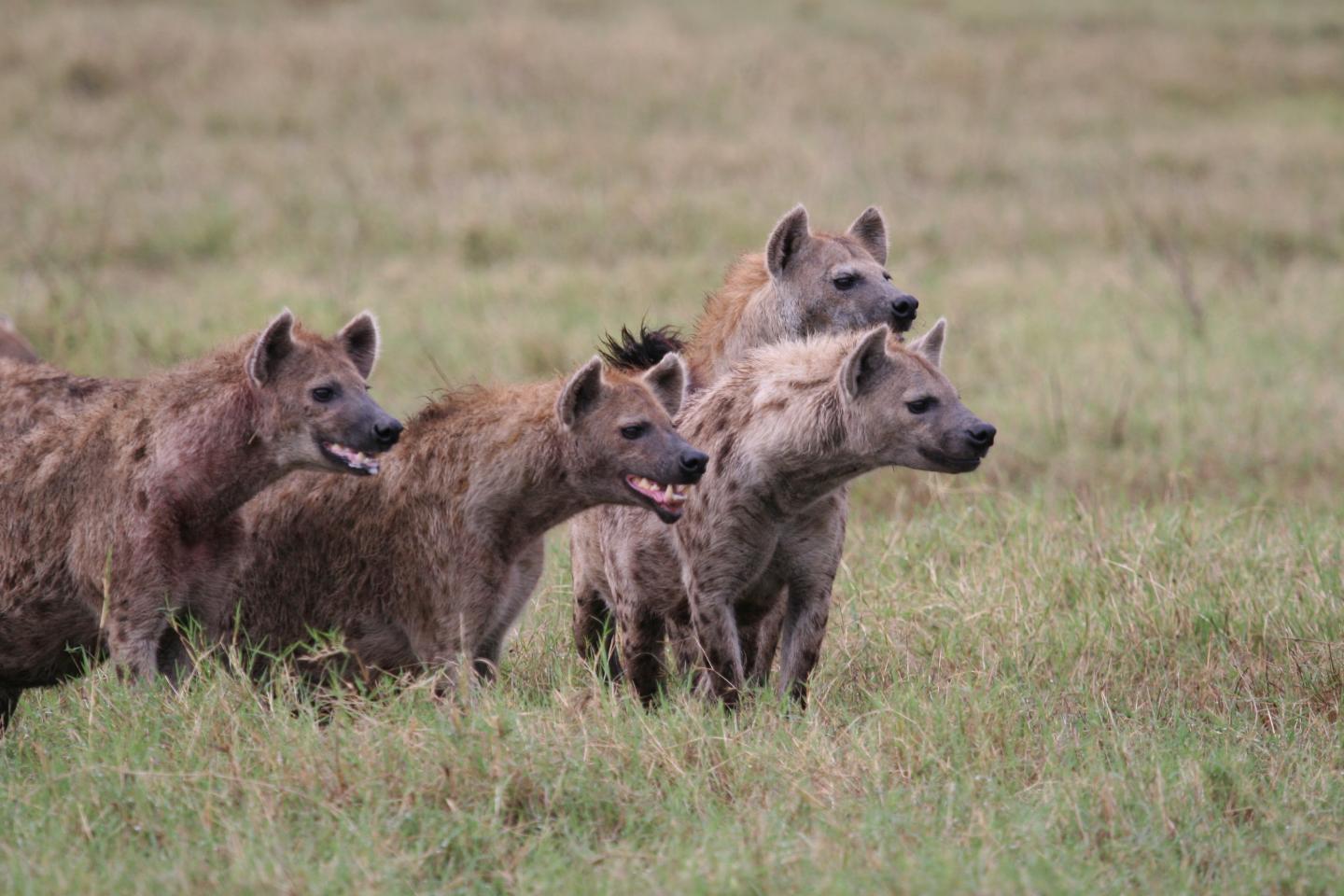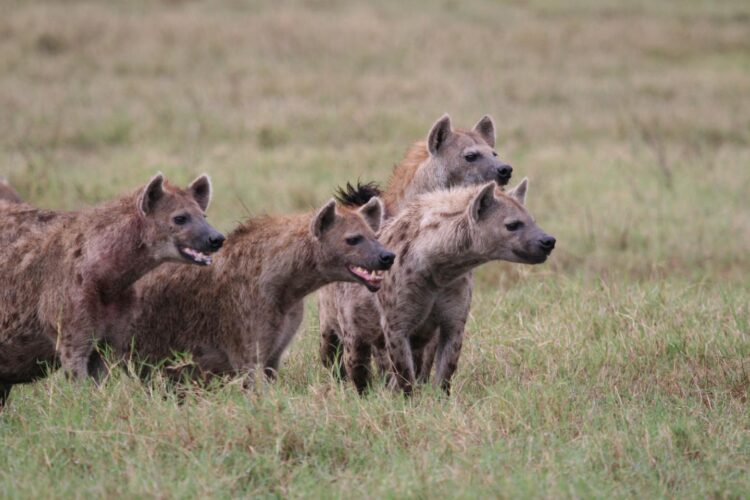Interacting with other males is more “stressful” for low-ranking than for high-ranking male spotted hyenas

Credit: Oliver Höner/Leibniz-IZW
Scientists from the Leibniz Institute for Zoo and Wildlife Research (Leibniz-IZW) have found that interacting with other males is more “stressful” for low-ranking than for high-ranking male spotted hyenas. This restricts the time and energy low-ranking males can invest in courting the most desirable females and is therefore a key factor for their lower reproductive success than their high-ranking rivals. This mechanism seems to be more important in determining the number and quality of offspring than physical traits such as attractiveness and fighting ability. These insights were possible owing to a combination of extensive field and lab work – over 20 years of searching and identifying thousands of hyenas in the Ngorongoro Crater in Northern Tanzania, monitoring their behaviour and life histories, and measuring the concentration of glucocorticoid metabolites in more than 400 faeces. The findings are published in the scientific journal Functional Ecology.
In most animal societies, resources are not shared equally among members of a group. Those at the top of the social hierarchy usually have preferential access to food, to resting locations and to the most desirable mating partners. Since evolutionary processes favour those who reproduce most, many animals invest considerable effort in reaching and maintaining a high rank, and intrasexual competition for access to mates is often intense. “We wanted to assess how males of different rank respond to competition, behaviourally and hormonally, and how exactly social rank influences reproductive success in group-living mammals”, says Dr Oliver Höner, head of the Leibniz-IZW Ngorongoro Hyena Project. “One prominent hypothesis states that high-ranking males are more successful because they are stronger and/or more attractive thanks to their preferred access to resources. But empirical evidence in support of this hypothesis is limited.” Another hypothesis emphasises the social dimension of dominance relationships and posits that the rank-related differences in the physiological costs (“stress”) of male-male competition shape the behaviour and, ultimately, the reproductive success of males. “This has not been tested in systems in which the two hypotheses can be disentangled”, Höner explains the aim of his team’s investigation.
The scientists studied the interplay between male social rank, physiological costs and male investment in social and sexual activities. They used measurements of faecal glucocorticoid metabolite concentrations (fGMC) as biomarkers of “stress” and long-term behavioural data of 319 male hyenas. “When males courted females and interacted with male competitors, low-ranking males had higher fGMC than high-ranking males”, lead author Eve Davidian says. “In contrast, fGMC did not vary with social rank when males were alone or when they courted females and rivals were absent.” Low-ranking males tended to shy away from stressful competition; they spent more time alone and less time engaging in social and sexual activities than did high-ranking males. They also invested less than high-ranking males in courting the most desirable females. And males who invested little in courting females were rarely picked as sires.
But why are low-ranking males more “stressed” by interactions with rivals? Eve Davidian assumes that the reason is related to the fact that these males are newcomers in the group. “These males lack friends they can rely on and hang out with and they also have no scapegoats they can redirect aggression onto, a behaviour that spotted hyenas often show and that is likely to help them release frustration and cope with stress.”
This scientific investigation demonstrates that intrasexual competition can elicit rank-related differences in “stress”, behaviour and reproductive success even in a species such as the spotted hyena in which dominance relationships are established based on nonviolent social conventions. In species in which males fight for dominance, the costs of competition may be even more prohibitive for low-ranking males. This may explain why in many of these species, low-ranking males do not court females or adopt “sneaky” tactics that minimise competition with rivals, such as approaching females when the high ranking males are busy elsewhere.
###
Media Contact
Oliver Höner
[email protected]
Original Source
http://www.
Related Journal Article
http://dx.





